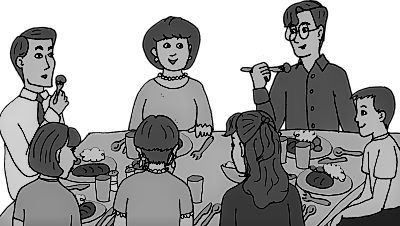Ikebesi Omoding
Atanasi Sapat goes back to the village after the attack

It was late afternoon when he arrived at the place three hours later. He ambled to a nearby eating place, which went by the name of Gorome Food Kiosk. He sat down at a derelict table; and presently a young woman came by asking him what food he would eat. He asked her to serve him with the local specialty.
“What is it?” Sapat wanted to know.
“That would be rice, matooke and skewered chicken in groundnuts paste,” the woman attendant replied. “And if you want, there can be added a side plate of, boo.” Boo was the source made from the green vegetables from the peas widely grown in the area. Sapat ordered for her to serve him with these.
As he was eating, the young woman kept on coming by his table. There were a few other customers in the kiosk, but she was not very attentive to them as to Sapat. It was clear that he was not from the locality. Presently she asked him if he wanted na drink to accompany his food.
“What do you have? Sapat asked.
“There is Bell, Pilsner and Premium beer. Satchets of Animal Whisky are also available,” she replied. She did not mention any soft drinks of soda.
Sapat was slightly taken aback. “Are there no soft drinks?” he asked. “It seems to me it is too early to drink alcohol at this time of day, isn’t it?” he replied.
“Not here; men can start to drink at any time of day, even in the morning,” she replied. “That is why I told you what type of drinks we have. But if you want soda, there is a variety including Pepsi, Coke and Riham.”
Sapat told her to bring for him a Stoney soda. From the way she was easily talking to him, he realized that he could carefully inquire from her about the area; and hopefully find out more of what he was after. He would test her and see if his theory was correct.
When she brought the soda and a straw to drink it from, and opened it for him, he asked her, “Do you have glasses? I like to drink it from a glass.”
“O.K. I will bring a glass. But people here prefer straws, even when they drink waragi from a satchet,” she replied as she went away to bring a glass for him.
Hhmm, Sapat mused. People here certainly have certain unconventional ways of doing things. As she set the glass before him and started to pour his soda into it, Sapat asked; “What are you called by name?”
She giggled briefly and said, “I am called Pese. Anita Pese. And, you?” she wanted to know of him.
Sapat regarded this briefly as an intrusion that might not be good; and decided that he would not tell her his real name. “Call me, Emilio.”
Pese said, “You don’t appear to be from here. Are you passing though going to the Northern Province?” she inquired.
“Yes, I shall be going there, sometime later, but for now I am looking for people who are dealing in timber. I understand they chop trees from around this area; and I want the kind of timber for building purposes,” he lied to Pese. “I am told I can find a man here called Tomet. I have his telephone number, but I have not yet called him. I want to fill my stomach first,” he added.
“I am not sure that I know that Tomet you talk about,” Pese replied, “But there are people from here driving Hino trucks, who go up and down to the forests to bring poles of timer. I don’t see any of them here, yet, but if you were to stay longer, I could point out one or two of them to you.”
Well well, Sapat thought, Pese was certainly obliging! He thought that she might lead him to somebody who would take him back to the fork of the road, ten kilometers from here, in that forested area where the attack on the Prime Wife took place. If he met the right person, he could go to the area, look around and even try to meet the villager whom he had initially interviewed for the story scoop that had broken the ice of the attack of the presumed rebels.
He did not want to appear as a journalist because the story had died down and was somewhat stale now in the minds of the people. As such they would be suspicious nas to why he would want to know what took place more than a month earlier. Besides, one never knew, whether the local regime officials had not been alerted to report any persons snooping around trying to find out about the incident. That usually happened, especially when there was something to hide and the regime wanted to deter any knowledge of its shenanigans.
Comments

















